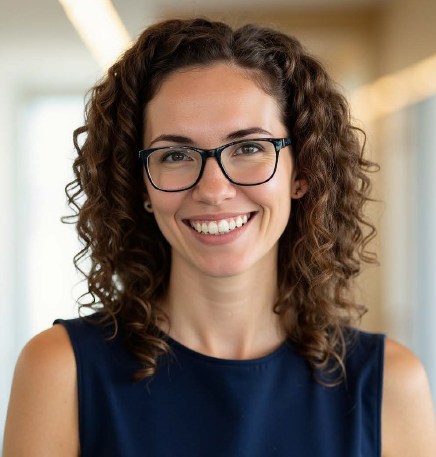5 Women Edtech Founders Closing Learning Gaps For Underserved Communities

While education is considered the great equalizer, opening doors and providing opportunities, equitable access remains a barrier. UNICEF reports that over 600 million children worldwide cannot reach minimum proficiency in reading and math. In the U.S., 32% of public school students ended the 2023-2024 school year behind grade level in at least one subject.
The UN’s Sustainable Development Goal 4, which aims to provide free, equitable, quality education while eliminating all gender disparities and access issues by 2030, is a work in progress. But there are women stepping up with edtech platforms. From academic tutoring to college counseling, these five founders are combining innovation with purpose to address equity and access.
Tamar Huggins
Tamar Huggins has made educational equity her life’s work, building systems that protect culture, drive equity, and return power to communities. She founded Tech Spark, Canada’s first Afrocentric tech school, to address the achievement gap for Black and Brown students. Through Tech Spark, over 240,000 underrepresented students across North America received access to culturally responsive STEM programs.
Tamar’s newest program, Spark Plug AI, currently in beta mode, is described as the “equitable version of ChatGPT.” It is a personalized learning assistant designed to translate academic material into culturally responsive and engaging language for Gen Zers. Created with her teenage daughter, Spark Plug allows marginalized students to see themselves reflected in their learning.

Jaloree Lantigua
A game developer and speech therapist, Jaloree Lantigua is focused on making STEM education inclusive. She founded STREAM Technologies to provide equal access to students who are neurodiverse, gifted learners, and have special needs. Jaloree’s work earned her a spot on Forbes’ 30 Under 30 in Education list in 2024.
STREAM’s digital edtech platform is interactive and project-based, offering three main programs: video game development, 3D design and animation, and basic digital tools. Students learn through play, working at their own pace with guided on-demand content. Courses are also bilingual, available in English and Spanish.
Claire Mongeau
With an estimated 1.3 billion school-aged children worldwide lacking internet access at home around the world, too many miss out on learning opportunities. Claire Mongeau recognized this problem in East Africa and built M-Shule, a Kenyan edtech startup to address this gap. According to M-Shule’s website, the program has reached over 45,000 users in seven languages.
What makes this startup stand out is that it delivers personalized education using SMS and Whatsapp. Unlike many edtech tools, students do not need smart devices and an Internet connection to learn. For places like Kenya, where homes are more likely to have mobile phones compared to computers or smartphones, M-Shule makes access to learning easier.

Aly Murray
Educational equity and access is personal for Aly Murray. Raised in a low-income home by a single mother who was also an immigrant, Aly struggled navigating the school system and college application process. Her experience inspired her to found UPchieve, a free online tutoring and college counseling platform.
UPchieve’s mission is to provide equal opportunity for upward mobility by closing the college enrollment gap for low-income students. The edtech platform offers 24/7 on-demand tutoring in over 20 subjects to low-income middle and high school students. Aly’s goal for UPchieve is to provide free access to tutoring to all low-income high school students in the U.S. by 2030.
Jessica Reid Sliwerski
As a former teacher, literacy specialist, assistant principal, and co-founder of LightSail Education, Jessica Reid Sliwerski built her career on the knowledge that every child can learn to read. In 2021, she co-founded Ignite! Reading, an edtech platform that delivers differentiated one-on-one reading instruction over Zoom.
Grounded in the Science of Reading, early pilots had incredible results. Students were making 2.4 weeks of reading growth for every week in the program. There were also no achievement gaps for students of color, low-income students, multilingual learners, or those with special needs. A recent study, which focused on low-income populations, also found students making significant progress. With national reading scores falling and struggling readers declining the most, Ignite! is helping underserved populations become confident readers.






